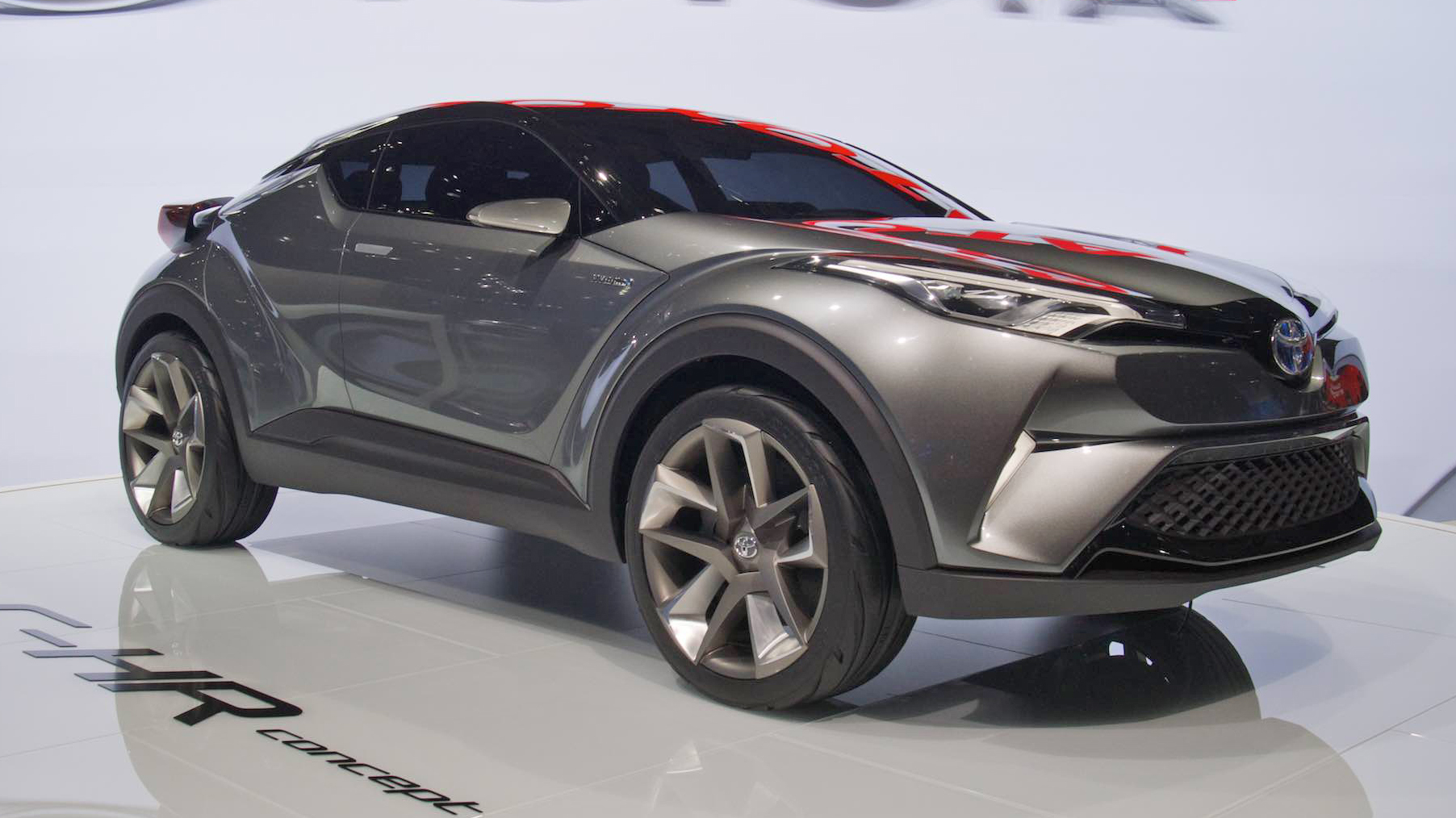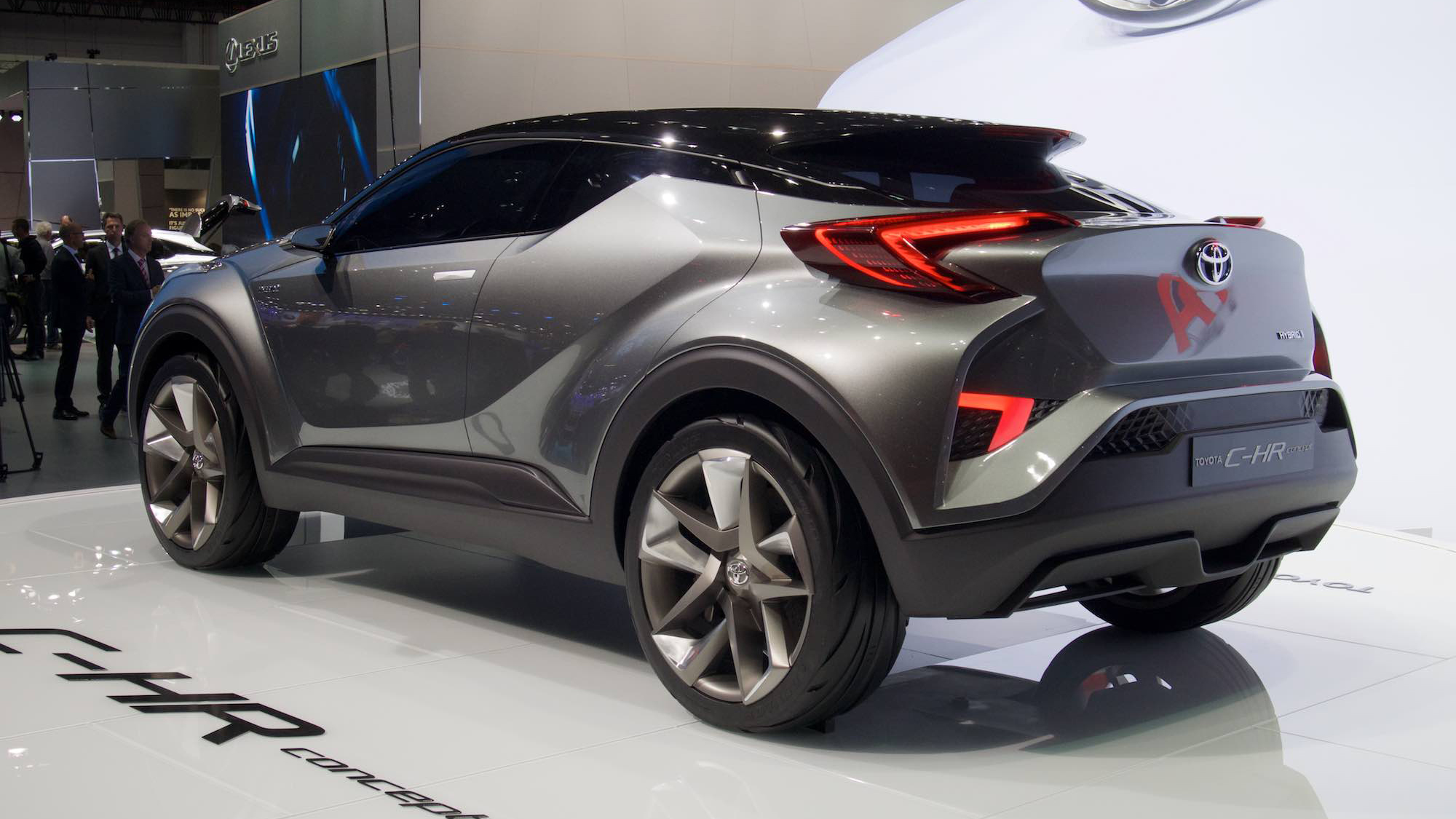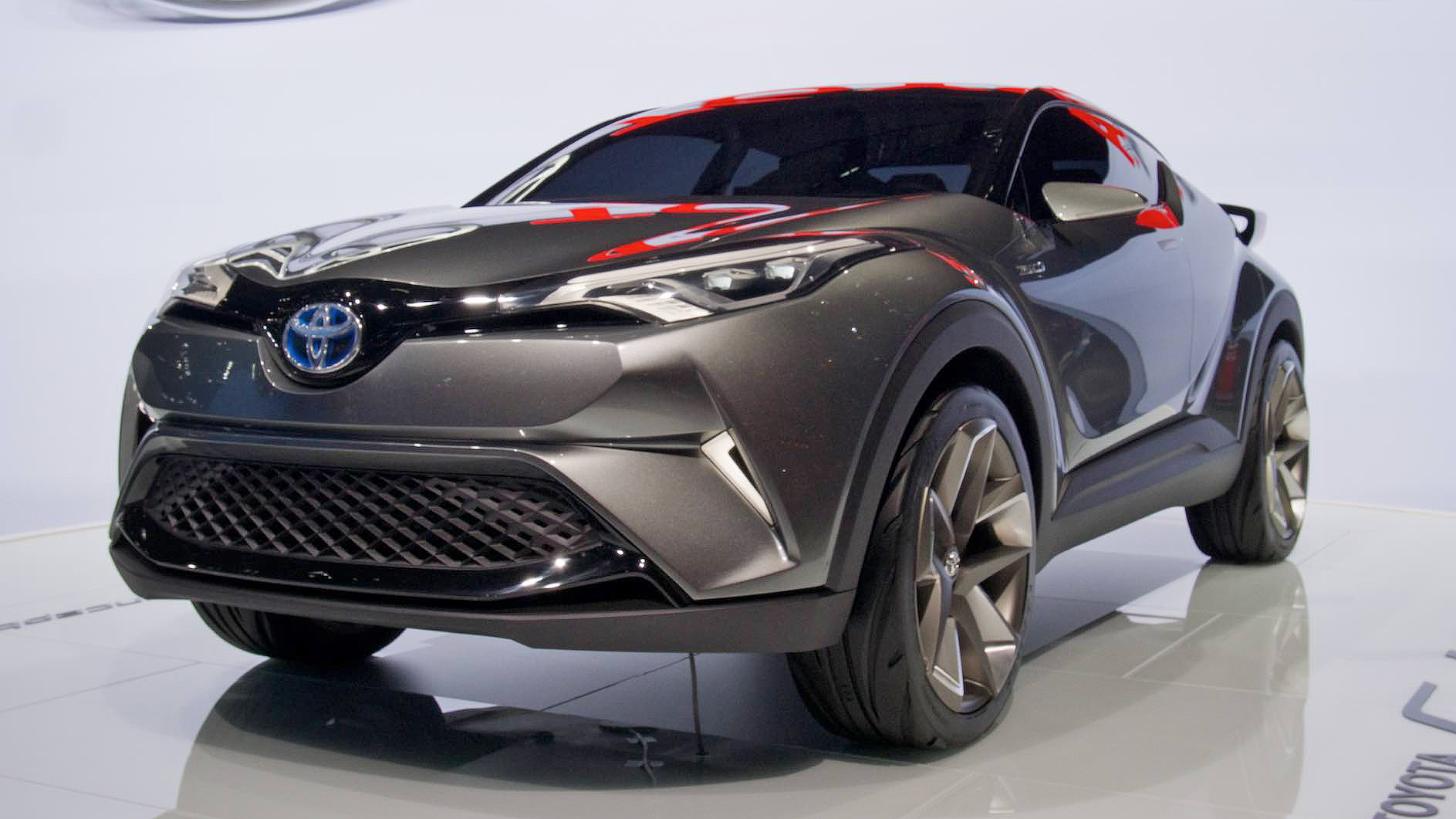
Toyota new crossover will be 'distinctive', engineering boss promises
Remember how wacky the RAV4 used to be? Toyota's hybrid C-HR hopes to rekindle that, and it'll be here by spring
Toyota is loosening its tie and letting down its corporate hair. The firm's Frankfurt show crossover concept, called C-HR, will turn into a production car for the 2016 Geneva show next spring. And it won't be hamstrung by Toyota's traditional boring practicalities.
The production car's chief engineer Hiro Koba tells Top Gear that he was allowed to break away. Instead, a spiffy style is the priority. "There are now so many compact crossovers. Toyota is late. So we need to be distinctive. Customers for these vehicles want a crossover for style. They want to show individuality."
Koba goes on: "They mostly travel alone or with one passenger, and don't have much stuff with them. So I traded rear room and visibility, and luggage space, for style."
The concept is a five-door, as the production car will be, but the design camouflages the back doors. The whole body's surfaces are exaggeratedly three-dimensional, with angular cuts between the facets.
Yeah, but it'll be watered down for production, we say. Koba replies: "If we do that too much we can't reach the target customers." We'll see.
The finished car will be smaller than the Qashqai crowd, but bigger than most in the ballooning mini-crossover set (i.e. the Juke and Captur). Most buyers of these cars come from hatchbacks, so they won't tolerate poor handling or heavy fuel consumption, Koba reckons, so he made driving quality a priority.
Koba looks mildly alarmed when describing European driving habits. The car was partly styled and developed here, so he visits often. "Drivers don't slow down when they meet on a narrow road or go round a bumpy blind corner." So he says he made sure the production car is unfazed by our breakneck style, claiming it has precise steering and supple suspension.
He says he was helped by the car's mechanicals, which are part of Toyota's New Global Architecture (TNGA). This vast Lego set of platforms and engines and suspensions means that the centre of gravity is lower than old Toyotas, and the body is stiffer and lighter. Good news for dynamics.
The powertrain will be the next-generation hybrid system, but he won't give a power figure. It's supposed to give a more natural response to the accelerator than the current Toyota hybrids too. Which is just as well.
Will there be a version with electric drive to the rear axle? "We are thinking about that." Which is universal Japanese engineer code for "I'm not allowed to say, but yes."
Top Gear
Newsletter
Thank you for subscribing to our newsletter. Look out for your regular round-up of news, reviews and offers in your inbox.
Get all the latest news, reviews and exclusives, direct to your inbox.
Strange that Toyota finds itself coming late to the small-crossover game. Back in the mid 1990s (when New Labour was big news, somewhat fittingly) the original RAV4 was very much the same thing. But then it grew and got boring, so now Toyota has to start again. Fancy its chances?










